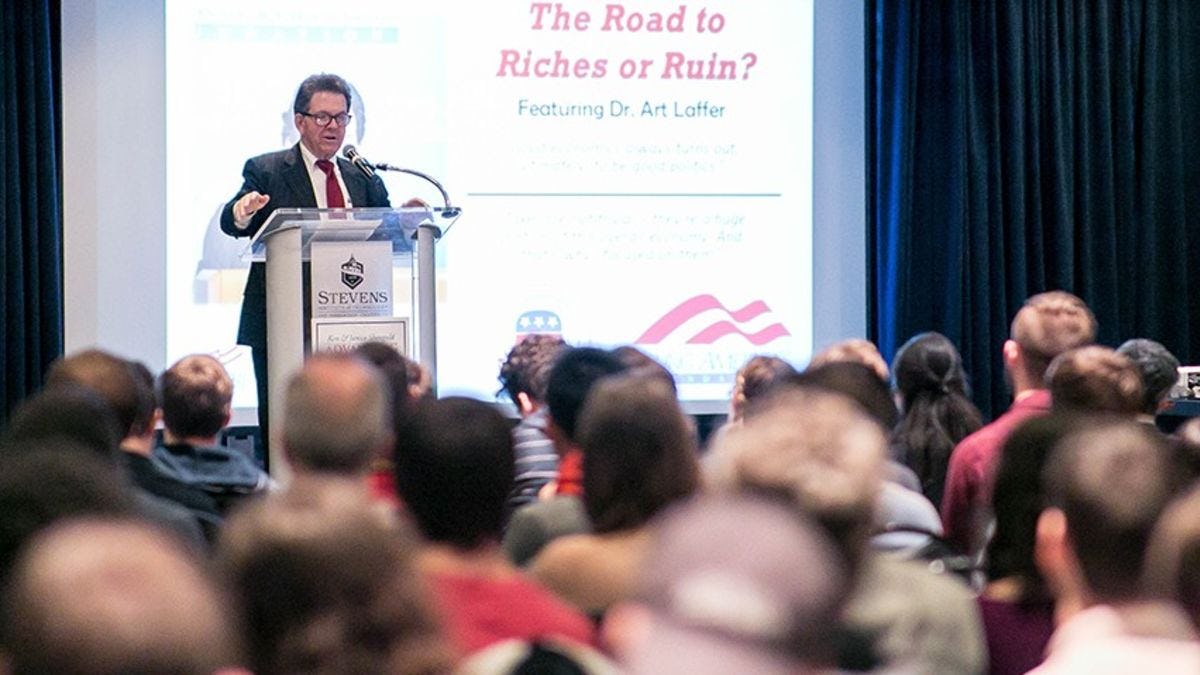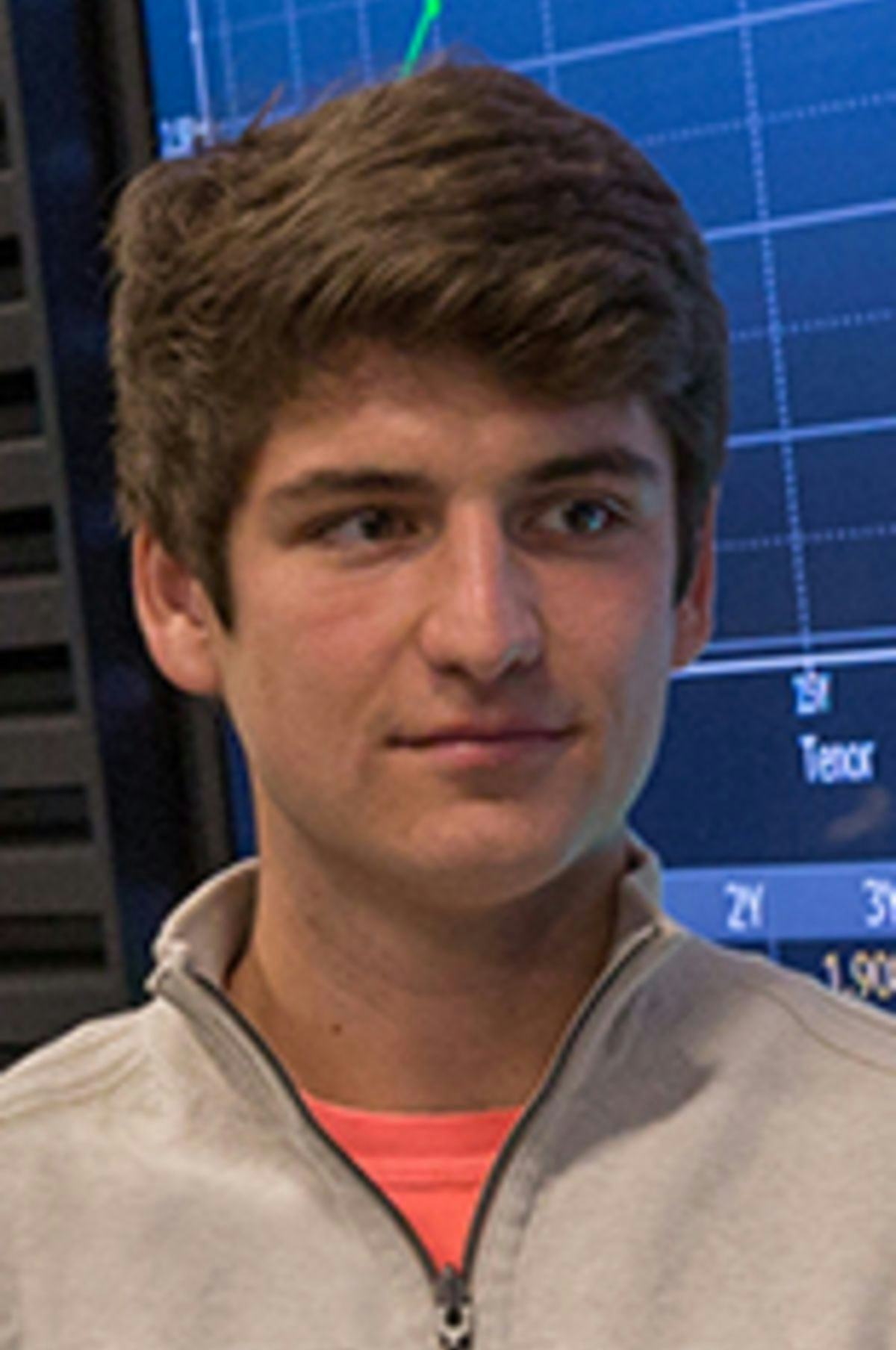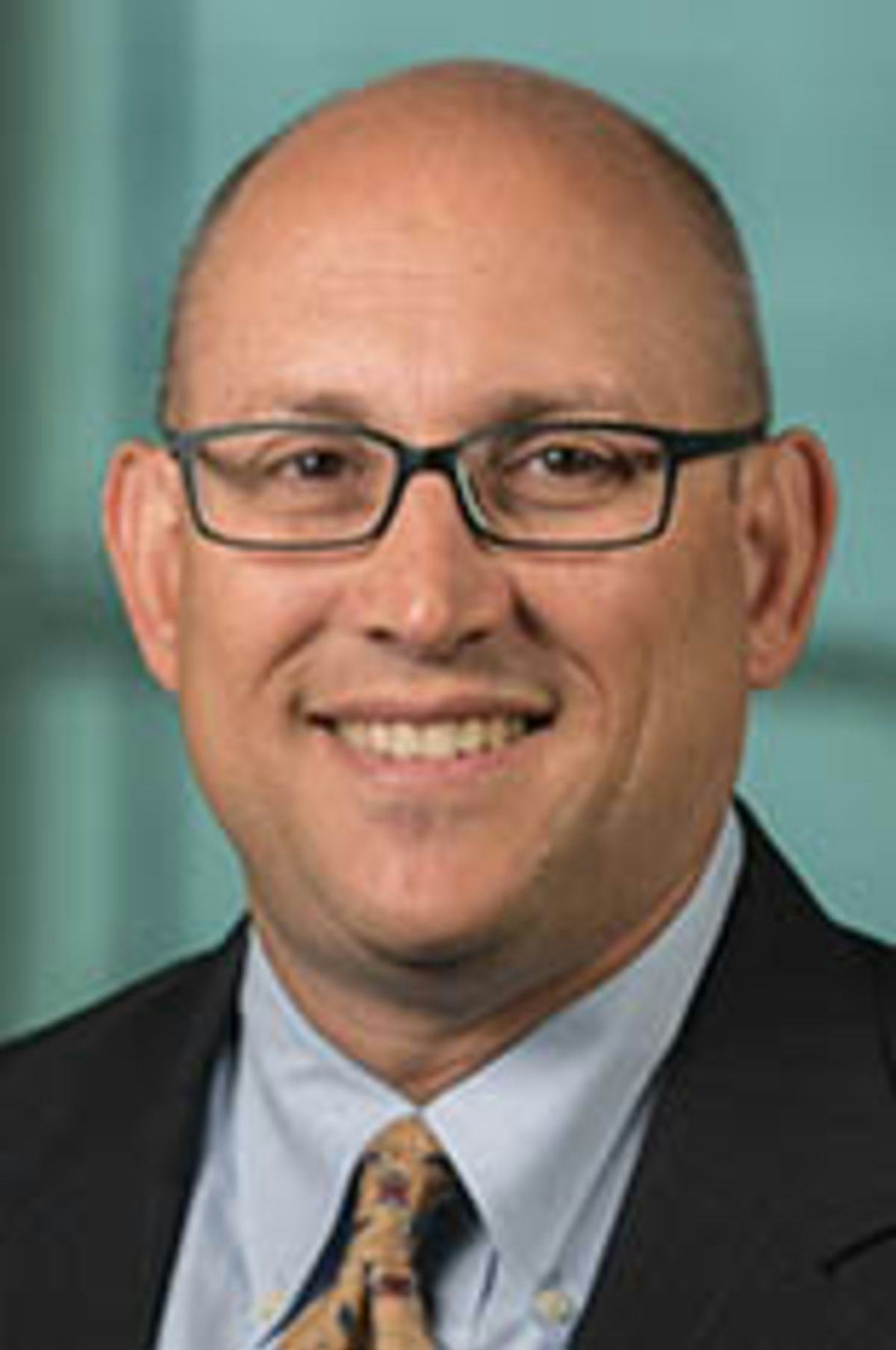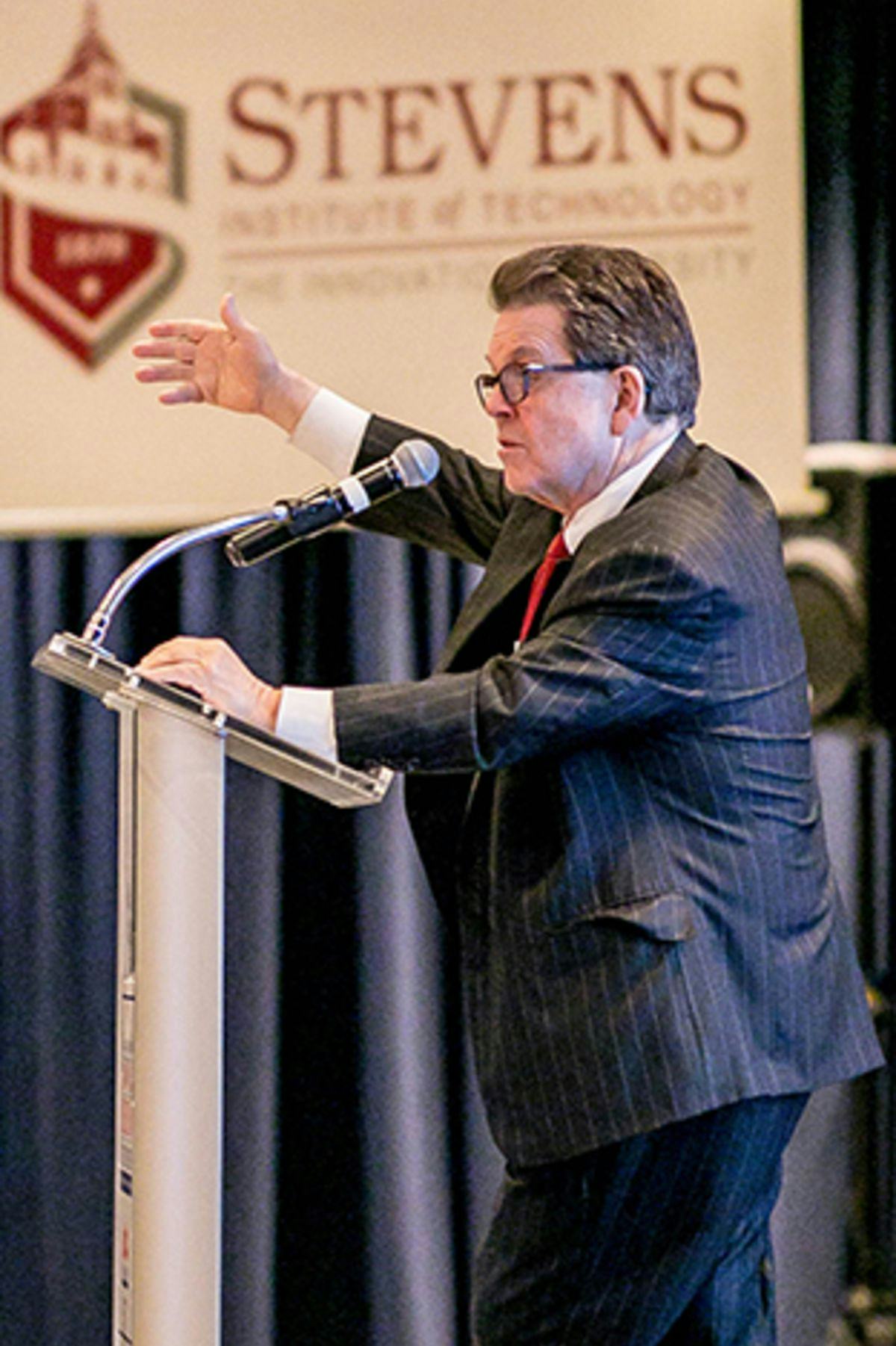Noted Economist Arthur Laffer Talks Tariffs, Tax Policy in Visit to Stevens
Students Saw Debate Come to Life as 'Trumponomics' Took Center Stage
Right as Dr. Arthur Laffer was extolling the evils of high tax rates and how they discourage labor participation and innovation, the lights in the classroom where he was delivering his lecture flickered off.
“Oh no,” Dr. Laffer, a former advisor to President Ronald Reagan, quipped. “Is that your new governor” — Democrat Phil Murphy — “doing that?”
Someone with Dr. Laffer’s conservative credentials might not be the first choice to speak to a room full of college students — especially in blue New Jersey. But Danny Polk, a senior in the School of Business and president of Stevens Institute of Technology’s chapter of College Republicans, invited him for just that reason.
“He’s not a politician, he’s an economist who makes sense, he’s very good at explaining free-market ideas in plain terms,” Polk, a Virginia native who is studying Finance at Stevens, said. “This is a college campus. This is the best place to talk through our disagreements and find compromise.”
'A great fit at Stevens'
Dr. Laffer delivered a guest lecture in an economics class, spoke with faculty and held a talk on what he termed “Trumponomics” with nearly 300 students and guests on March 1. Polk had the idea of inviting him after seeing Dr. Laffer speak during the National Conservative Student Conference during the summer.
“I thought he’d be a great fit at Stevens, given the campus dynamic — you have a lot of people here interested in the business side of policy,” said Polk, who invited him through the Young America’s Foundation.
Dr. Paul Rohmeyer, an industry associate professor of Information Systems at the School of Business, called Dr. Laffer a credible speaker on controversial topics, whose presentation was “fantastic.”
“He’s an opinionated man, but he’s not a polarizing figure,” Dr. Rohmeyer said. “I think he’s a good person to speak about topics that are viewed by so many as potential third rails, and he does it in a disarming way.”
In his talk, Dr. Laffer discussed his signature idea, the Laffer curve, which attempts to understand the relationship between tax rates and revenue collection. He also talked about the consequences of tax cuts and tariffs; the latter was an especially hot topic, while he spoke, news was breaking about the White House plan to tax foreign steel and aluminum.
“All taxes are bad, but some are worse than others,” Dr. Laffer, a free trade proponent, said. “Tariffs always work against you. You may help American steel workers for one or two weeks, but long term, you lose to everyone.”
A question-and-answer session after Dr. Laffer’s talk further challenged the president’s tax policies, and even explored why Bernie Sanders’ brand of socialism was so popular in the 2016 election cycle.
“The best part of these lectures are when you have people who don’t agree with the speaker ask questions that challenge him or her,” Polk said. “When you have a little disagreement, that’s what makes it exciting. If you just go along and are in lockstep with everyone, you’re not really learning anything.”
A future in finance
In addition to his work with College Republicans, Polk plays on the varsity tennis team, is an RA and a brother in Sigma Nu. He’s completed two internships — with Campbell Soup and EY — and will start working as a financial services advisor with EY’s Technology Advisory Program after graduating this spring.
“I don’t know exactly where I want to go with finance — there’s so many routes you can take,” said Polk, who is also pursuing a minor in Quantitative Finance. “Consulting allows you to work with a lot of different opportunities within finance, so I’m looking forward to further exploring the industry.”
His experiences at Stevens have been enhanced by studying at a technology-focused school just 10 minutes from New York City, giving him opportunities to meet recruiters and managers through career fairs, classes and events like Dr. Laffer’s talk.
“It’s always fun to see your textbook come to life, quite literally,” Polk said. “When you get people excited about economics or fiscal policy, that’s what should be happening in an educational environment. To see that debate come to life — you’re seeing it on the news, reading about it in the Wall Street Journal — right in front of you is an incredible experience.”



